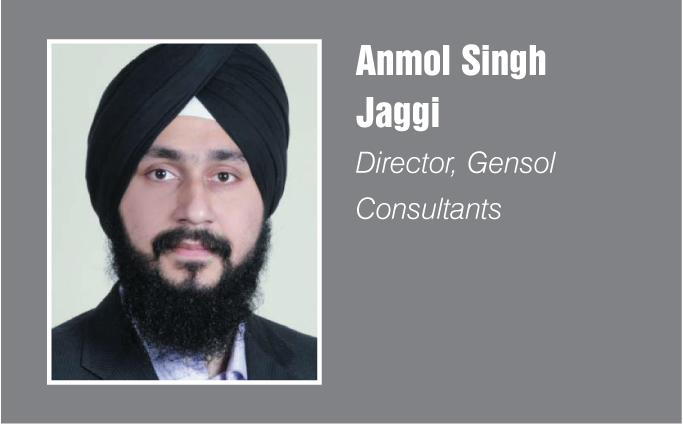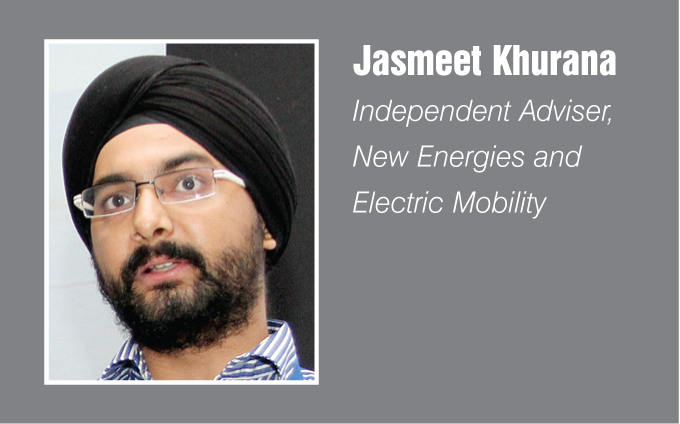The Ministry of New and Renewable Energy (MNRE) has recently issued notifications for ensuring the quality of equipment used in the solar industry. While the industry agrees on the benefits of MNRE’s latest order, there are doubts regarding its implementation. Meanwhile, the industry remains divided on the benefits of discontinuing the channel partners’ programme. Industry experts discuss the likely impact of these moves on the solar power segment…
What are the key issues pertaining to equipment quality standards in the solar power space?
We have to differentiate between two sets of solar power equipment being used. One set comprises the domestically manufactured equipment and the other consists of equipment being imported, primarily from China. Equipment manufactured in India is governed by MNRE standards and all solar equipment has to go through testing at the National Institute of Solar Energy (NISE) before being sold in the market. NISE has a testing bench for this purpose. However, this is purely theoretical. As far as the practical procedure is concerned, people get the NISE or MNRE certification done, but it is not clear if the products made at the manufacturing units are as per MNRE standards or not. The products supplied to MNRE for testing could be of good quality but this may not be the case for the entire consignment. There is no random testing of equipment and the company has to send only a few samples in a year to MNRE. Whenever buying modules or other products, customers ascertain product quality at the supplier’s factory. By testing a lot of products at the factory end, we have found that the equipment quality is poor and does not meet the standards set by the ministry, due to which we have to reject the material and place a new order.
The primary responsibility for ensuring equipment and plant quality lies with developers or power customers. Market dynamics should reward high quality suppliers and push out low quality suppliers. In addition, the government’s role should be to provide the right guidance on product standards and certifications.
Moreover, testing and certification practices in India are, at best, average. As an end-customer, I would not trust the quality of a product just because it carries a certain certification. Across all sectors, the focus of government policies should be to make the certification companies more accountable and ensure that defaulting equipment suppliers are suitably penalised.
As far as testing practices are concerned, there were no formalised rules until now. Companies like Amplus Solar have been using international norms in the absence of concrete domestic regulations, not just for solar modules, but for all components.
There is need for certification of all individual components as it would have a collective impact on the entire system’s quality.
Solar modules constitute 60-70 per cent of the total cost of a solar project. Currently, there are two types of modules/cell technology available, namely mono-crystalline and multi-crystalline. Recent improvements in polycrystalline panel technology have resulted in the development of modules equal to or better than many mono-crystalline brands in terms of size, efficiency and heat tolerance. There are many unknown module brands and manufacturers selling modules in India for small-scale applications, which is creating uncertainty in the industry. However, all the top manufacturers have a strong presence in India and are accepted by the developers.
Currently, there are laboratories accredited by UL, TUV and National Accreditation Board for Testing and Calibration Laboratories (NABL) in India to conduct the tests mentioned in MNRE’s “Quality Control Solar Photovoltaic (PV) Systems, Devices and Components Goods” order. We need to have more such testing centres in India to meet the growing demand and ensure good quality installations.
What are your views and feedback on the Ministry of New and Renewable Energy’s (MNRE) “Quality Control Solar Photovoltaic Systems, Devices and Components Goods” order?
Anmol Singh Jaggi
This is a great initiative but it should be enforced strictly. Instead of making testing a once-in-a-lifetime process, the testing agency should have random checks for samples to ensure that proper quality is being maintained throughout.
Jasmeet Khurana
The requirements of the order are fairly standard, but the implementation must be carried out properly to meet the stated objectives. The order should not become a tool to harass the end-customers for compliance.
Ritu Lal
MNRE’s recent order is a welcome move. From what I hear, these are very similar to the International Electrotechnical Commission norms. This was much-needed because now we are setting stringent norms for the entire solar segment. This will help improve product quality and processes across the entire solar component supply chain. Amplus already uses the world’s best available equipment that has international accreditation.
When we buy any component, apart from checking the international certifications, we also do our own testing. For example, Amplus has tied up with reputed independent labs in China to ratify our imported shipments from China. This is done even when Tier I modules are imported. This is not a common practice in the industry due to the added associated costs. However, since Amplus works exclusively on the opex model and we follow the best work practices, quality and specifications become extremely important.
Gaurav Mathur
Considering the government’s plan in the solar PV segment, it is good that they are setting up policies to increase the quality benchmark of solar products sold in India as the solar plants end up working for 25 years. The initial time frame as per the September 2017 order was from August 1, 2018, but as per the November 16, 2017 notification, they have preponed the deadline to January 1, 2018, which is impossible to meet as some of the tests require 8-10 weeks and thus the total time required to get the Bureau of Indian Standards certification is 6-7 months. In the current scenario, it would be difficult for solar module manufacturers to get the tests conducted in such a short span. We have requested the MNRE to revisit their decision and also consider the test reports of NABL-accredited labs outside India, which are already available with us.
What are the loopholes that remain unaddressed in the order? How can they be solved?
Anmol Singh Jaggi
I think the biggest loophole is that the quality of the product is tested only once when it is being approved. After that, there is no further quality check done. But I would like to add that low product quality is not applicable to the entire market as our country has some very good quality manufacturers. There are some players with good quality standards and have been testing every product that leaves their factories. The problem exists with only some of the players in the market.
Jasmeet Khurana
Most utility-scale project developers and even commercial and industrial customers are usually savvy enough to ensure quality. The biggest concern is to ensure that residential and off-grid customers are not taken for a ride. However, the solution to this problem will probably not come from quality standards but from market maturity. Customer education has a bigger role to play in this than new orders on quality standards.
Ritu Lal
The focus should be on the relevance of these new guidelines. Also, we need to ensure that these are stringent. The guidelines should be able to segregate manufacturers across the quality spectrum.
The testing labs themselves have to be up to the standards required and should be equipped to handle large volumes.
We are talking about a very diverse range of equipment such as PV modules and their manufacturing lines, inverters, cables, mechanical structures, etc. We also need proper information regarding the testing protocols.
Gaurav Mathur
The issue that needs to be addressed is the bankability of solar module manufacturers. It should be a part of the control order to restrict suppliers from selling their inferior quality products in India. Also, since the modules carry a performance warranty of 25 years, it is essential to have financially healthy manufacturers producing quality products, which would be in the market for the next 30-40 years.
In the wake of spiralling solar tariffs, would the new order/standards have any impact on the cost of solar equipment and the resultant tariffs?
Anmol Singh Jaggi
Every project needs to be built with high quality standards, only then it can last for 25 years. If the project does not last for 25 years, developers and investors will not be able to realise the estimated returns. So, it is a given fact that any company, which is developing a project, would have thought of using good quality material. I would say that if you think that the tariff has gone too low due to which lower quality material would need to be used, then do not bid.
Jasmeet Khurana
Not really.
Ritu Lal
For organisations like Amplus Solar, I do not think that the new order will have a long-term impact on tariffs as we are already purchasing high quality products which obviously come at a price premium. However, in the short term, if we do not have enough testing facilities and if inventories are held up for 2-4 months, there will be a shortfall in supply. This could lead to a temporary rise in component prices, thereby impacting tariffs.
Gaurav Mathur
There are possibilities of some initial disruption in pricing, but it would stabilise over a period.
What are your views on MNRE’s decision to discontinue the empanelment of channel partners under the grid-connected rooftop and small solar projects programme? What is its likely impact?
Anmol Singh Jaggi
I am a little disheartened that it has been discontinued. At least through the channel partner programme, customers got to know the quality and ratings of the channel partner. Customers were able to look for the ratings on the internet and accordingly place orders with good channel partners. If there are no ranking standards and no basis for judgement, then even low quality players can enter the market. Those players who could not become contractors or receive a good channel partner rating, may now take orders, ultimately leading to losses for customers.
Jasmeet Khurana
It is a good move. The MNRE subsidies are now anyway planned to be released through state-level and public sector undertakings contracts and tenders. To establish an installer’s credibility, these tenders usually specify a minimum requirement for turnover and installation experience. Therefore, registering as a channel partner has become an unnecessary additional requirement.
I would recommend that even subsidies should soon be done away with. A private market guided by globally accepted quality standards should be unleashed.
Ritu Lal
I do not foresee any impact of the discontinuation of empanelment as it was not very rigorously monitored for starters. Although ratings were given to the channel partners, they were not always relevant or updated. Moreover, the move to discontinue the empanelment of channel partners is not something done in isolation. The MNRE has also discontinued the subsidy programme, for which channel partner empanelment was an eligibility criterion.
Gaurav Mathur
It is a good step towards encouraging more startups in the solar rooftop segment. It would also help increase the number of installations in the rooftop segment because with an increase in the number of players, the rates per watt-peak have become very competitive. This would help in achieving the government’s ambitious target of 40 GW by 2022.






